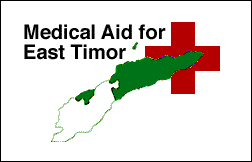West Papua Report June 2010
Summary
The West Papua Advocacy Team editorially notes that Papuans are welcoming the June visit of President Obama to Indonesia with the hope that the administration will seek to build a new U.S.-Indonesian relationship not based on military and commercial interests but rather founded on common respect for human rights and democracy. That hope fuels Papuan beliefs that such a transformation in the U.S. perspective could bring about fundamental change in their plight, an increasingly desperate situation in which the U.S. is historically complicit.
A military ultimatum to a rebel leader in the Papuan central highlands and thus far small scale military operations there are raising fears of a massive "sweeping operation" when the ultimatum expires in June. Initial reports indicate that operations may have begun ramping up at the end of May. In the past such operations have uprooted thousands of civilians and led to many civilian deaths.
Leading U.S. legislators have strongly cautioned the U.S. administration against resuming training and other assistance to the Indonesian Special Forces (Kopassus). Those forces are among the most prominent violators of human rights, especially in West Papua. Also in the U.S. Congress, Congressman Patrick Kennedy has launched a resolution in the U.S. Congress which expresses the sense of the House of Representatives regarding the human crisis facing Papuans. The resolution, now gaining support in the U.S. House of Representatives, calls on the Government of Indonesia to address human rights concerns, including the abuse of detainees.
An editorial by a senior official in Human Rights Watch has again called attention to extraordinary abuse of prisoners in West Papua and decried the unaccountability of the abusers. Indonesian authorities have again prevented international journalists from documenting peaceful civil dissent in West Papua. An Amnesty International report is strongly critical of the Indonesian government's continued repression of dissent noting in particular the use of torture against peaceful demonstrators. The Indonesian government is moving forward with plans for a massive "food estate" in the Merauke area of West Papua. The plan has drawn strong criticism from Papuan and international observers concerned that the government-organized in-migration of very large numbers of non-Papuans to work in the estate will further marginalize Papuans, amounting to what could be described as creeping genocide. Environmentalists have also voiced concern about the destruction of vast stretches of forest and peatland which will significantly increase carbon emissions.
Full report here

